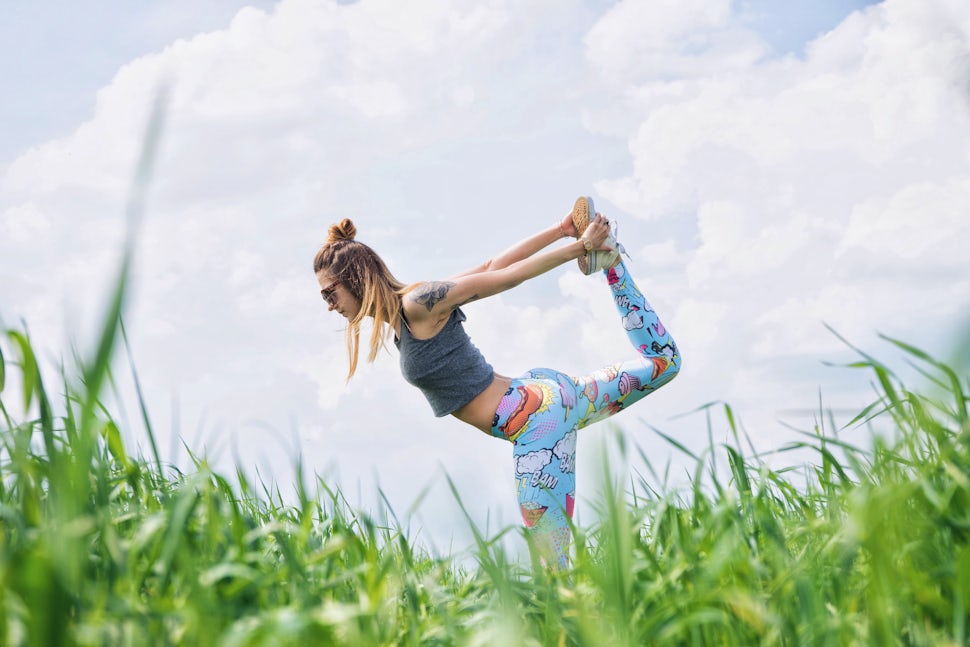4 Things Harvard Researchers Have to Say About Yoga

Yoga is a Sanskrit language term that translates to mean "to unite." In other words, the practice of yoga is all about connection. Yoga as a practice stretches back over several thousand years - some estimates place it as 10,000+ years old!
But today's yoga practice likely looks very different from the approach the ancient yogis took, in part because most of the poses that make up the modern yogi's lexicon are around 150 years old at best.
The biggest change, however, actually comes from what research has to say about yoga's health benefits. In this article, learn four key insights Harvard researchers have to share about practicing yoga.
1: Yoga lowers stress

While more oxytocin (the feel-good hormone) is always desirable, no one wants more cortisol, the hormone the body produces in response to stress. In fact, as stress levels remain high over time, the body's cortisol levels can rise to toxic levels, causing degradation of muscle, increase in belly fat, sleep disturbance, lowered immune system response, increased risk of anxiety and depression and - worst of all - reduced life span.
Yoga can help with all this, according to Harvard researchers. Yoga regulates heart rate, decreases the body's stress response and cortisol output, improves muscle mass and reduces pain response.
2: Yoga helps with weight control

Obesity is a major health concern in America today. The National Institutes of Health (NIH) reports that currently a full two-thirds of adults are considered overweight or obese.
According to Harvard Health Publications, yoga can help struggling practitioners to stabilize their weight and work towards their weight reduction goals in productive ways. In particular, yoga helps by increasing mindfulness, which supports people to notice when they eat, how much they eat and most importantly, why they eat. Yoga also promotes better body image and body esteem, both by the chance to wear cute yoga clothes and the opportunity to practice physical fitness in a healthy, supportive environment that is (typically) free from mirrors.
3: Yoga is heart-healthy
Harvard Medical School is excited about yoga for more than just its weight reduction and stress reduction potential. As it turns out, yoga has some major health benefits for the heart.
Yoga has now been shown to reduce the risk of heart disease just as well as more traditional fitness regimens such as fast walking. Yoga can also reduce blood pressure, lower "bad" LDL cholesterol levels, ease stress on the nervous system and promote deep breathing and better blood oxygenation.
4: Yoga eases symptoms of PTSD
For veterans suffering from post-traumatic stress disorder, or PTSD for short, help is now available in a surprising way - through the practice of yoga. Desperate for an effective remedy to PTSD for returning active duty military and veterans, the Department of Defense partnered with Harvard Medical School to study yoga's efficacy in treating PTSD.
The results were very promising, showing a reduction in flashbacks, a calming of the stress response that can lead to PTSD attacks, a reduction of violent response towards loved ones due to flashbacks and other serious symptoms such as hyper-vigilance and nightmares. Yoga's greatest impact appears to come from its ability to reconnect mind and body functions, which can be split apart by traumatic or violent wartime experiences.
While there is much more research to be done and many research studies going on right now, Harvard researchers and others have already found much of benefit that can come from the practice of yoga. Best of all, because there are so many different branches of yoga, from gentle restorative and meditative yoga to "hot" yoga and power yoga, there is literally a way for anyone to incorporate yoga into their healing and restorative daily routine.
In summary, yoga can benefit the body, mind, emotions and relations with self and others.
We want to acknowledge and thank the past, present, and future generations of all Native Nations and Indigenous Peoples whose ancestral lands we travel, explore, and play on. Always practice Leave No Trace ethics on your adventures and follow local regulations. Please explore responsibly!
Do you love the outdoors?
Yep, us too. That's why we send you the best local adventures, stories, and expert advice, right to your inbox.









